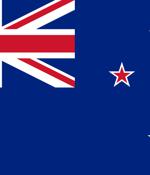Security News

Prime Minister bemoans bullying, addiction, and inappropriate content – but isn’t planning a rapid vote New Zealand’s government has signaled its support for a bill to ban social media for...

Cisco’s Splunk Acquisition Should Help Security Pros See Threats Sooner in Australia and New Zealand
Craig Bates, Splunk vice president of Australia and New Zealand, said the deal will help customers defend against modern threats by tooling security operations centres up with end-to-end security and observability. He added security data unification will be key to organisations in the future as they battle threats increasingly launched with the aid of AI. What does the Cisco and Splunk combination mean for cyber security software customers?

The government of South Pacific island nation New Zealand has revealed that it, too, has been attacked by China. A Tuesday announcement penned by attorney-general and minister of defence Judith Collins reveals that in 2021 the nation's Government Communications Security Bureau and National Cyber Security Center "Completed a robust technical assessment following a compromise of the Parliamentary Counsel Office and the Parliamentary Service in 2021, and has attributed this activity to a PRC state-sponsored group known as APT40."

Australian and Aotearoa New Zealand organizations know they're rapidly hurtling towards a security precipice and are willing to invest to try to save themselves from tipping over. New research from Gartner shows that security is becoming one of the most lucrative areas of IT in both countries.

This one has chewed-up tentacles. (Note that this is a different squid than the one that recently washed up on a South African beach.) As usual, you can also use this squid post to talk about the...

It’s in Timaru. As usual, you can also use this squid post to talk about the security stories in the news that I haven’t covered. Read my blog posting guidelines here.

New Zealand's Government Communications Security Bureau - the nation's signals intelligence and infosec agency - will retire its Waihopai satellite communications interception station because it's no longer needed. "The nature of telecommunications has changed, and other needs and capabilities have overtaken the sort of satellite communication interception that has been done at Waihopai," said Andrew Little, the minister responsible for the GCSB. "The GCSB's own statement on the matter reads"Changes in global telecommunications and information technology mean the interception of satellite communications from Waihopai has declined over the years to the point where dish use is now virtually obsolete.

Banks and post offices in New Zealand have been hit by a cyber offensive, according to reports, consisting of sustained DDoS attacks against a number of critical online services. Local cybersecurity agency NZ-CERT added to the general air of mystery, saying in a statement on its website that it was "Aware of a DDoS attack targeting a number of New Zealand organisations. We are monitoring the situation and are working with affected parties where we can."

Parts of New Zealand were cut off from the digital world today after a major local ISP was hit by an aggressive DDoS attack. Vocus - the country's third-largest internet operator which is behind brands including Orcon, Slingshot and Stuff Fibre - confirmed the cyberattack originated at one of its customers.

New Zealand's Waikato District Health Board has been hit with a strain of ransomware that took down most IT services Tuesday morning and drastically reduced services at six of its affiliate hospitals. Phone lines went down and hospitals were forced to accept urgent patients only.